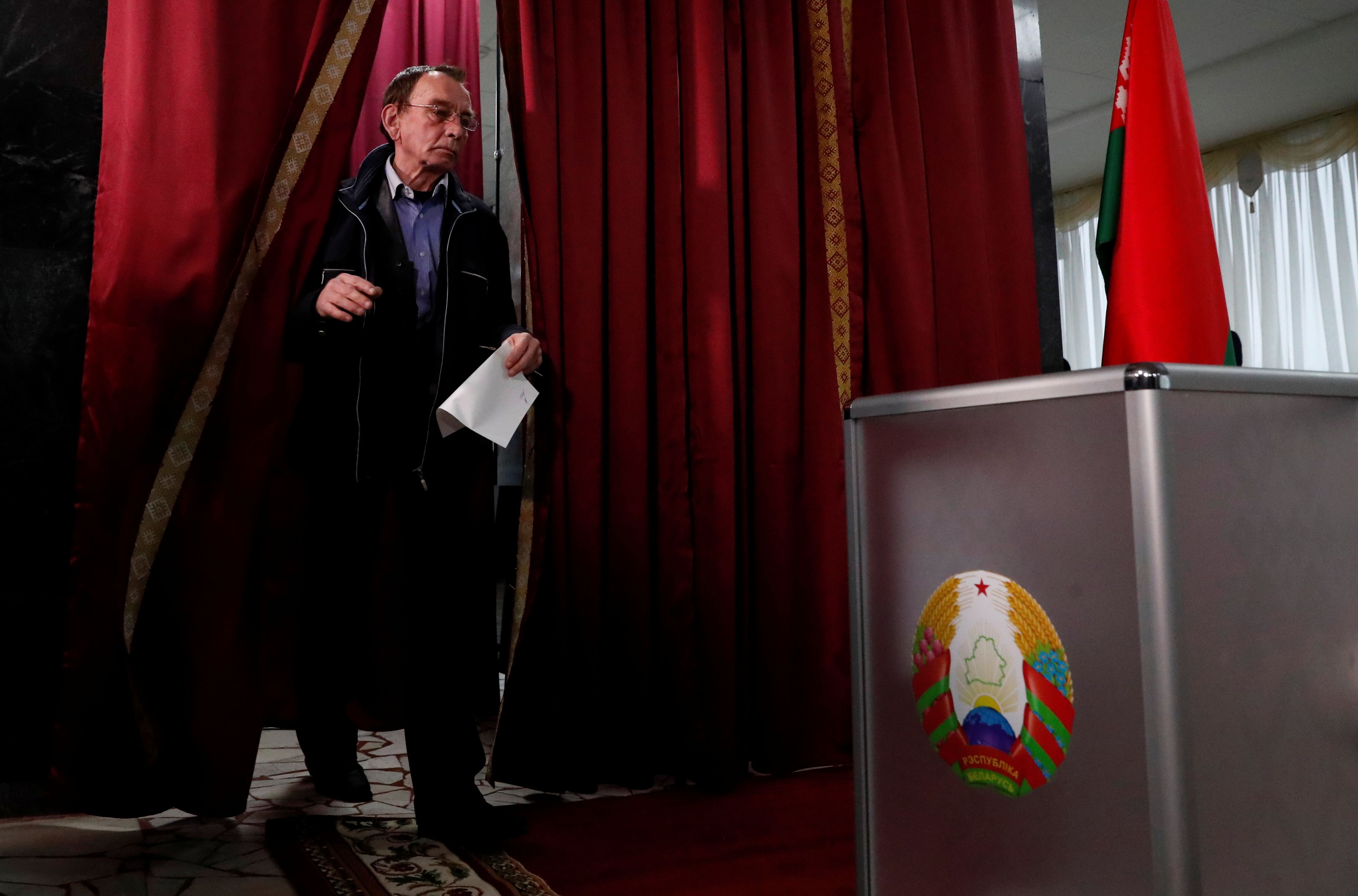Parliamentary Elections in Belarus

How are the chambers of the National Assembly of Belarus elected?
Candidates for deputies of the House of Representatives are nominated by social organisations, political parties, and collective employee bodies. Those who collect at least 1,000 voters’ signatures also have a right to register. In total, 110 deputies are elected by universal suffrage in single-member constituencies. Elections in a given district are valid if more than half of those entitled to vote actually participate.
Of the 64 MPs of the Council of the Republic, the upper house of parliament, 56 are elected by local councils of deputies—eight each from six local constituencies, eight from Minsk, and the remaining eight selected by the president. Elections to the upper house were held on 7 November by secret ballot during meetings of the local councils of deputies and the City Council of Minsk. The president has not yet indicated his nominees.
What role does the Belarusian parliament play in the country’s political scene and in wider affairs?
Formally, the parliament has a legislative function. However, both chambers of the National Assembly operate in session mode (the first begins on 2 October each year and cannot last more than 80 days while the second begins on 2 April and cannot last longer than 90 days). This means that when parliament is not sitting, the president has the right to issue decrees with the force of law. Although they are technically formally binding only until they are approved by deputies during the next session, so far no presidential decree has been rejected. Parliamentarians also do not use their right of legislative initiative, officially because of the complex procedures, and thus the legislative initiative is only in the hands of the president and his government.
What happened during the campaign and elections to the House of Representatives?
The elections to the House of Representatives lasted from 12 to 17 November. In early voting, turnout is reported to have reached almost 36%. During the campaign, the opposition organised a number of meetings. Some of them were obstructed outright by the authorities (i.e., by turning off the lights at the place of assembly or increasing police checks), but no serious incidents occurred. However, international observers i.e. from the OSCE did not consider the campaign democratic. The OSCE’s most important allegations are the lack of control over the votes cast on 12–16 November (including instances of ballots added without proper controls, resulting in results unfavourable to the opposition), overstating turnout, and delaying the start of the opposition candidates’ campaigns—the CEC registered 560 candidates out of 703 willing people, but excluded many known representatives of the opposition, such as sixth-term deputies Elena Anisim and Anna Kanopatskaya.
What to make of the election results?
The election results will not change how the Belarusian political system functions. Although President Alexander Lukashenka has declared he will seek to amend the constitution to extend parliamentary competences, among other changes, he points out that such reform should not be expected soon (at the earliest after next year’s presidential election). Moreover, the new MPs are unlikely to take the initiative to do this. Their role will probably be limited to approving the draft of the constitution prepared by the president’s administration in cooperation with the country’s Constitutional Court.
The parliamentary elections did not change the government. The Council of Ministers is formed by the president and he only needs agreement from parliament to approve a prime minister.
Will the result of the election influence Belarusian relations with Poland, the EU, and Russia?
The election results do not change Belarus’ relations with Poland. It should be expected, that the high frequency of contact between both chambers of the National Assembly and the Polish Sejm and Senate will be maintained during the Belarusian parliament’s next term.
Nothing will change in relations with the EU or its institutions, such as the European Parliament, which still does not recognise the Belarusian parliament as a democratically elected body, nor will it be admitted to the EuroNest parliamentary assembly, which consists of 10 deputies from each of the parliaments of the Eastern Partnership countries (Belarus is suspended) and 60 from the European Parliament.
The election result will also not be relevant in Belarusian-Russian relations, for which the president and the government are primarily responsible.


